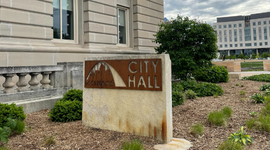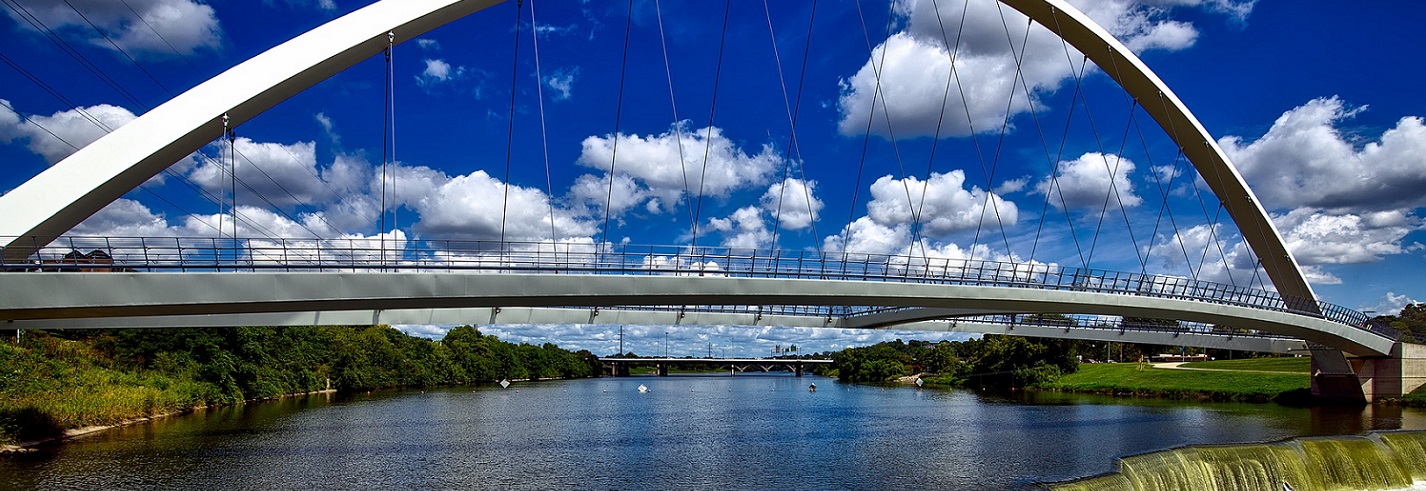Des Moines' Cooperation Statement with MidAmerican: What's promised and what's missing?
posted
by Matt Ohloff on Wednesday, July 13, 2022
 On May 23, 2022, the Des Moines City Council had its third and final reading of the newly negotiated electric and gas franchise agreements with MidAmerican Energy. The agreements passed each of the three required readings with a 5–1 vote, with one council member recused from the vote. These new franchise agreements, spanning thirteen years, expire in 2035.
On May 23, 2022, the Des Moines City Council had its third and final reading of the newly negotiated electric and gas franchise agreements with MidAmerican Energy. The agreements passed each of the three required readings with a 5–1 vote, with one council member recused from the vote. These new franchise agreements, spanning thirteen years, expire in 2035.
There is an option to revisit the agreement after five years to renegotiate but did not include language that would allow the city to terminate the agreement if MidAmerican did not fulfill its commitments. The lengthy agreement with no out clause was a disappointment for many climate advocates, including IEC, but a new “side agreement” helps to address some concerns.
The City Council voted unanimously to approve a non-binding Joint Clean Energy Statement of Intent to Cooperate. This “side agreement” is an important tool to hold MidAmerican Energy accountable in working to meet the city’s clean energy and climate goals. Since Des Moines is now stuck with MidAmerican Energy as its electric and gas utility until 2035, whether it cooperates with the city in fulfilling the side agreement or not, it is now up to city officials and residents to track the progress of the cooperation agreement and ensure the commitments are met in the coming years.
Cooperation statements are relatively new practices for cities and energy utilities, with the cities of Minneapolis, Salt Lake City, and Denver, among others, passing such agreements in the past decade. The franchise agreement negotiation process is an important opportunity for cities looking to achieve climate and clean energy goals to bring their utility to the table to put in writing specific commitments to help achieve those goals. Des Moines is unique because it is the only one of these cities that has passed a 24/7 carbon-free electricity goal and then incorporated that goal into pieces of the cooperation statement.
The City of Des Moines passed the first 24/7 carbon-free electricity goal in the United States in January of 2021. Since then, other cities have passed 24/7 CFE goals, including South Lake Tahoe, CA, and Ithaca, NY. Des Moines has a goal of achieving 24/7, or around-the-clock, carbon-free electricity by 2035. This means all the electricity used in the City of Des Moines, by the city, residents, businesses, electric vehicles, and beyond, would come from clean energy sources at all hours of the day.
In order to meet this goal, the city must receive hour-by-hour data from its energy utility to know how much energy is being used in the city and how that energy is being generated. For instance, an energy utility may be supplying a city with a large percentage of clean energy at certain times of the day, and then supplying the city with polluting fossil fuel sources at other times of the day. It’s critical that the city has this information to know how it can address the gaps in clean energy generation, such as building solar or battery storage projects that could reduce the need for energy when the utility’s fossil fuel generation is high.
The new cooperation statement by the City of Des Moines includes language “to develop a long-term hourly load forecast to include energy and peak demand for City facilities and communitywide, to be updated annually throughout the duration of this joint statement of intent.” The agreement goes on to say the City and MidAmerican will publish an annual joint report by December 30, beginning in 2023. These reports will be essential in tracking progress and the level of cooperation from MidAmerican Energy in helping the city achieve its goals.
Many other projects and priorities are laid out in this cooperation statement, including expanding energy efficiency, beneficial electrification, energy storage, carbon-free and renewable energy projects, smart grid solutions, electric vehicle infrastructure, inclusive financing programs, and more. Many of these projects will likely be included as part of the City of Des Moines’ current climate action and adaptation planning process, called ADAPT DSM. It will be important this plan is as ambitious, comprehensive, and equitable as possible. The City’s cooperation statement with MidAmerican Energy will be useful to ensure MidAmerican brings those commitments to this climate plan for the City of Des Moines.

- carbon pollution
- clean energy
- climate change
- conservation
- renewable energy